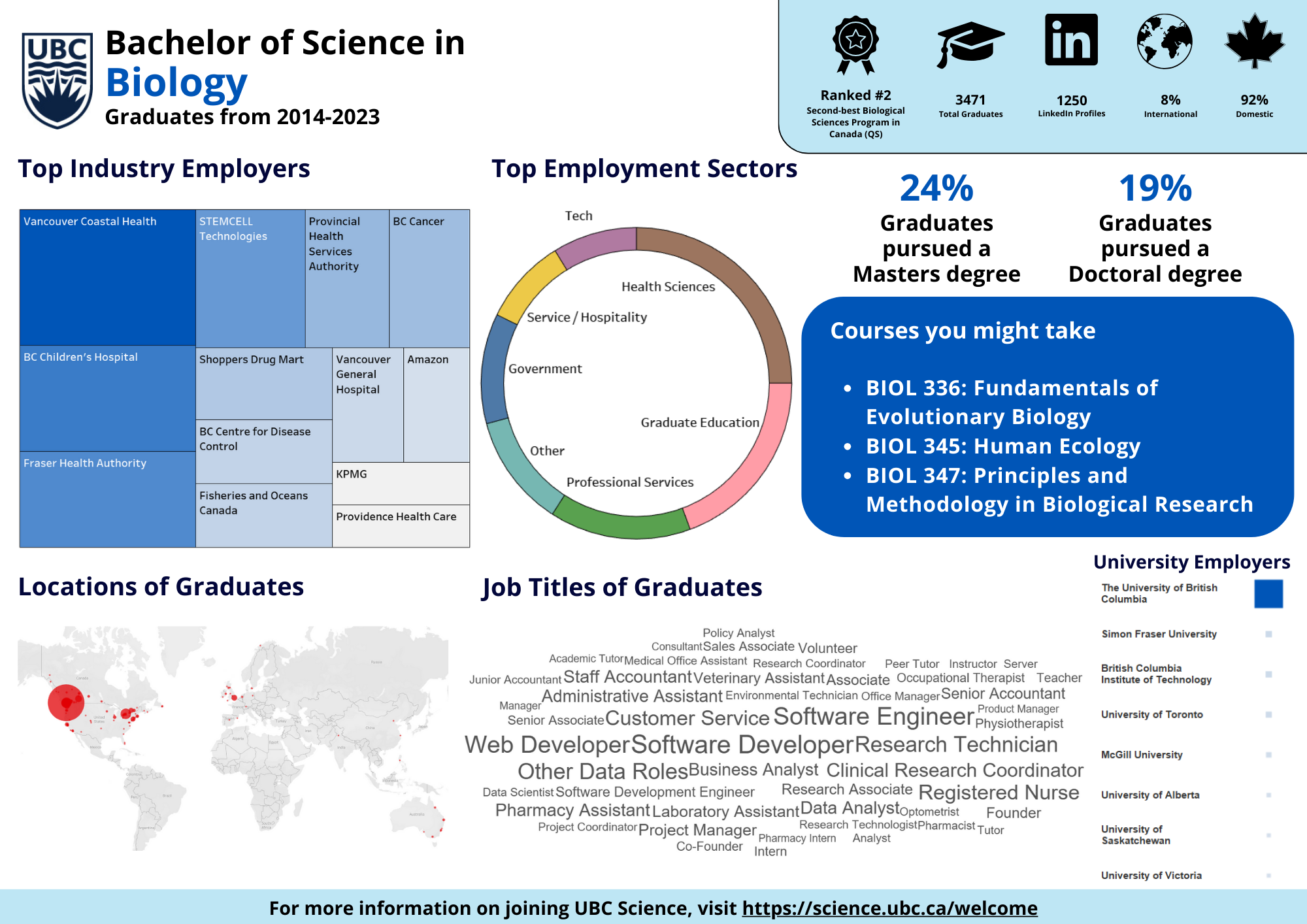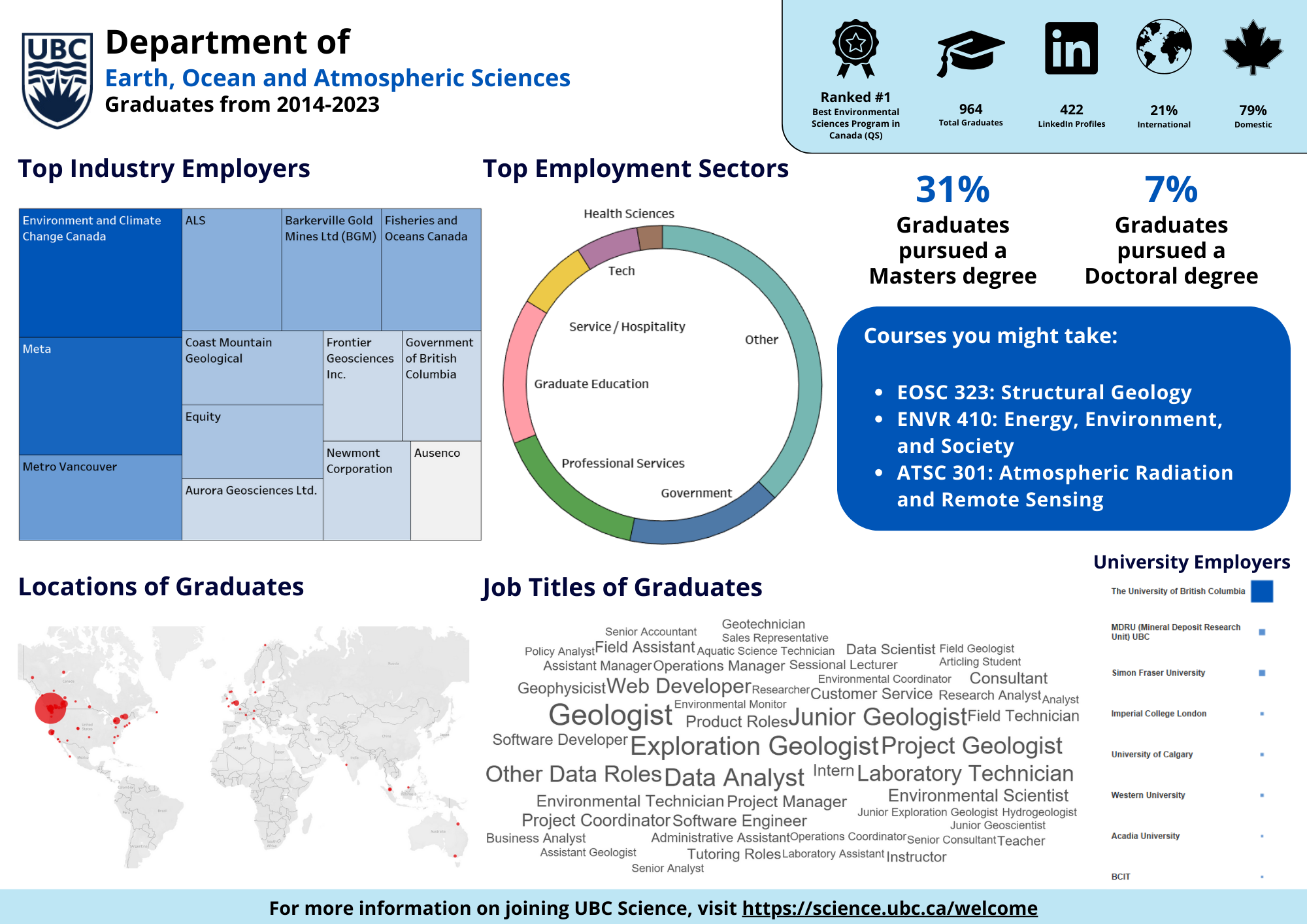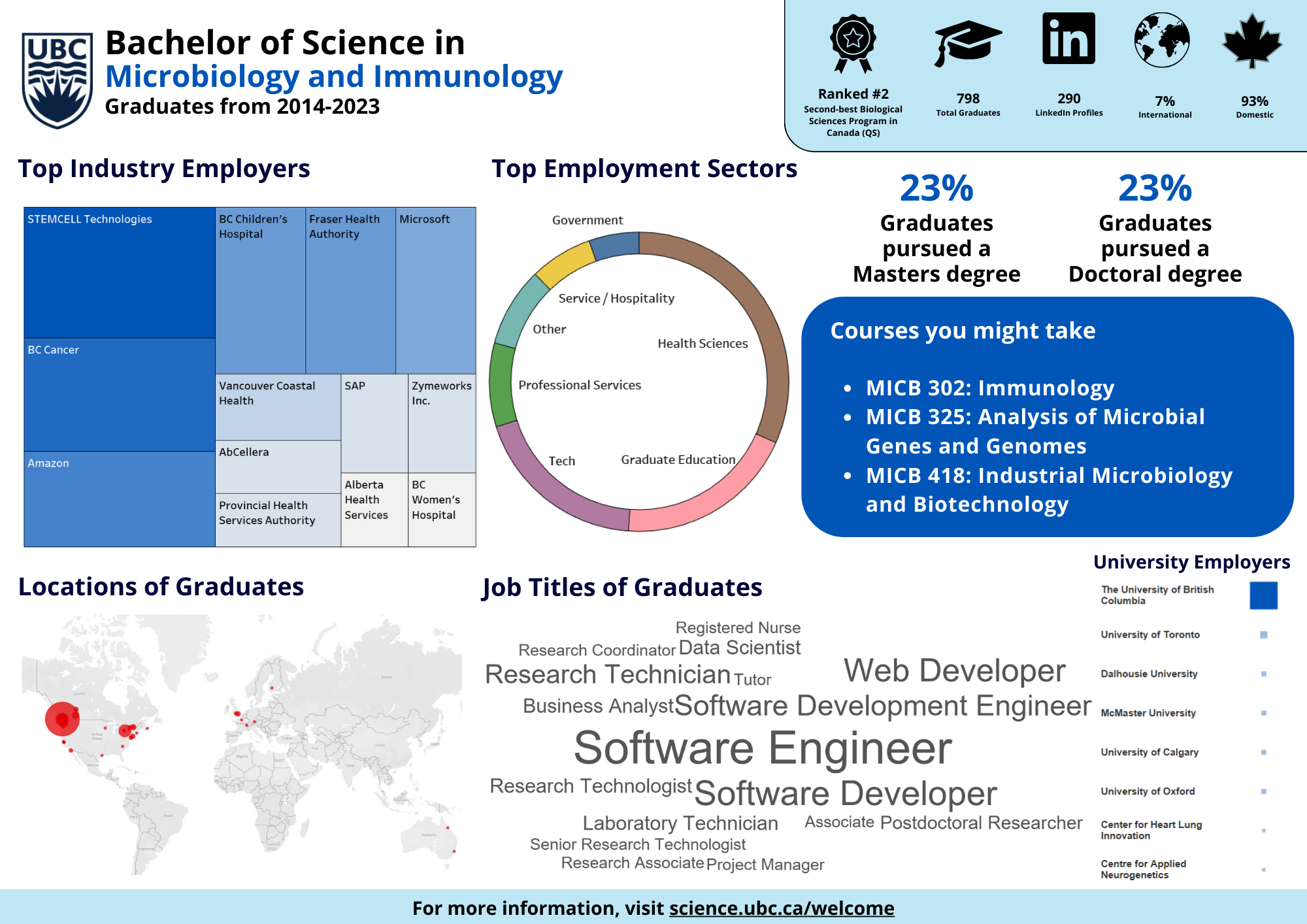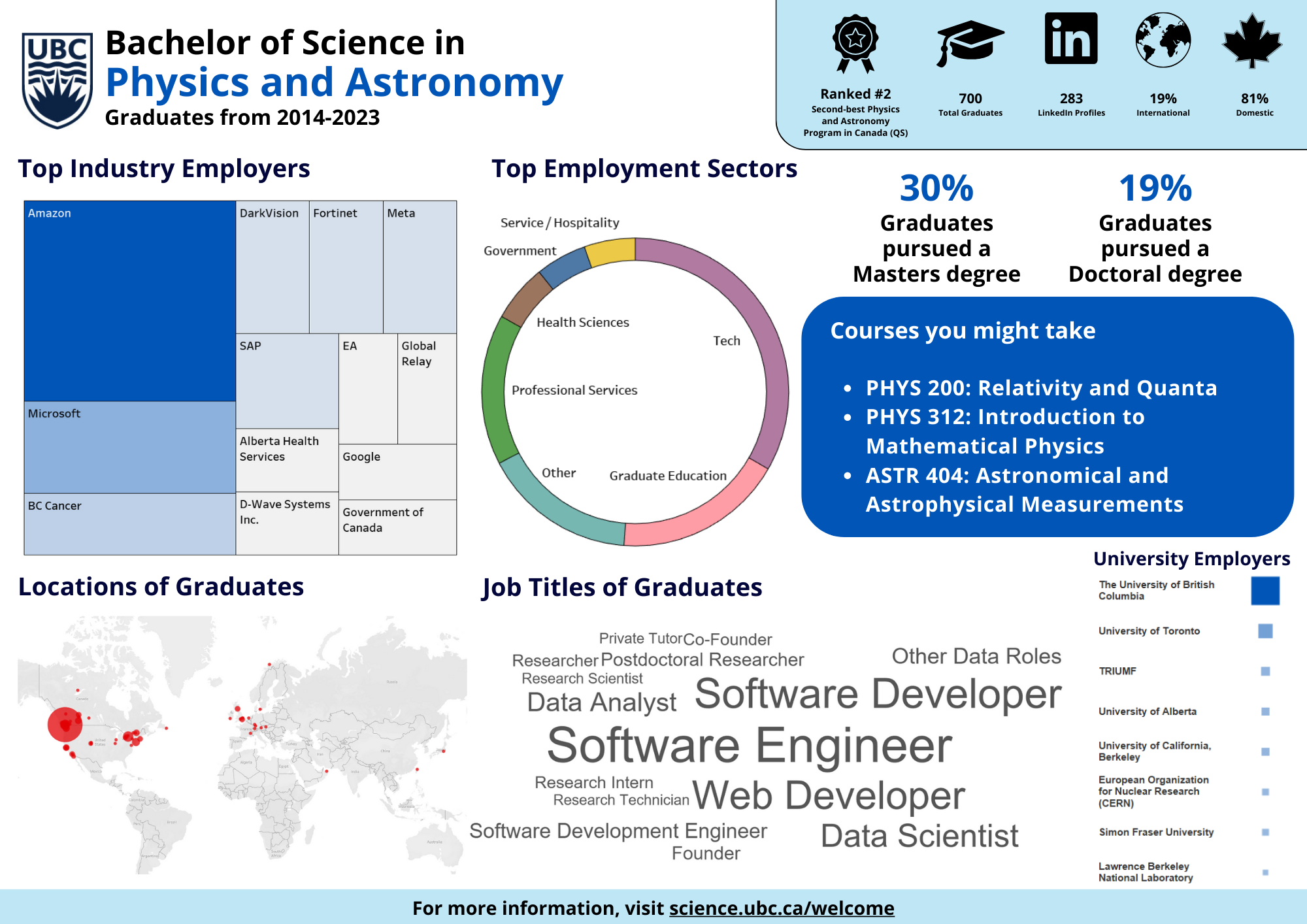Wondering where a UBC Science degree can take you? Explore the profiles below to find out. We’ve used data from LinkedIn to outline our graduates' top employers, job titles, work locations, second degree choices, and more.
Biology
Biology is a broad field dedicated to the study of all aspects of living things: animals, plants, insects and microbes, as well as their relationships to their environments.

Chemistry
Chemistry is the science of the materials that make up our physical world, including areas like as pharmaceuticals, advanced materials, biochemistry, and theoretical chemistry.

Computer Science
Computer science at UBC gives you a thorough grounding in software design, and a broad choice of studies in other areas like machine learning, data mining, parallel computation, and advanced algorithms.

Earth, Ocean and Atmospheric Sciences
Earth and ocean sciences spans all aspects of understanding the history and dynamics of our planet, as well as how to best manage its resources and the environment we live in.

Mathematics
Mathematics is a powerful tool for solving practical problems and a highly creative field, combining logic and precision with intuition and imagination.

Microbiology and Immunology
UBC Microbiology and Immunology is a leading centre for the study of bacteria, fungi and viruses--and their roles in human health and disease, agriculture, natural ecosystems, energy and sustainability.

Physics and Astronomy
Physicists study the material world and the energy that drives it, from the smallest particles like neutrinos and Higgs bosons, to the largest structures in the universe.

Statistics
Statisticians work in almost all areas of science, engineering, business, government and industry.
